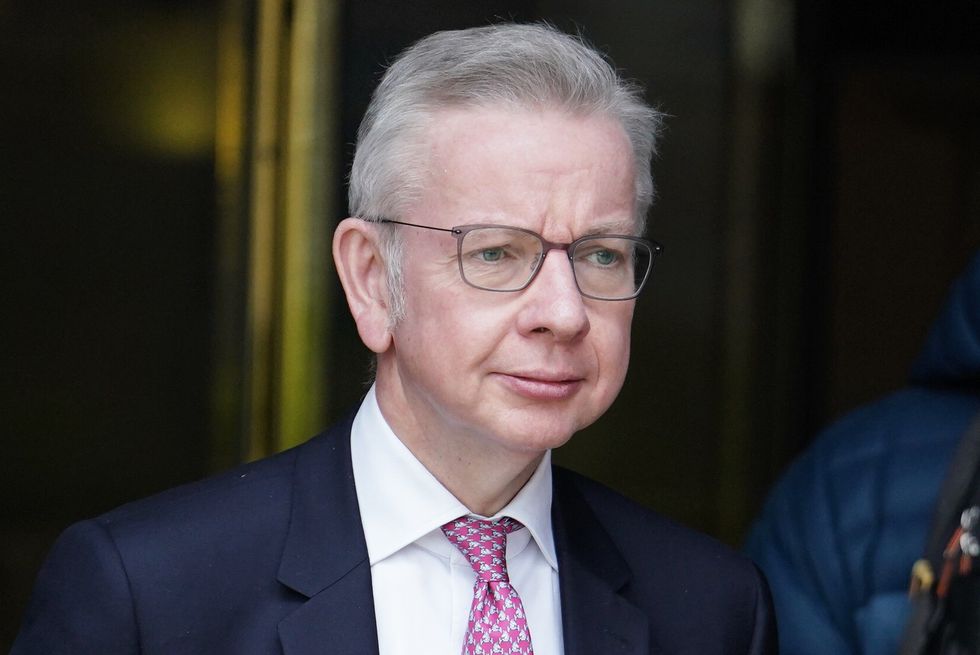
 Press Releases
Press Releases 
Ever since he and I shared a platform at a Labour conference Fringe Meeting in 2003 and jointly rounded on Claire Short for the tone and manner of her opposition to the Iraq war, I’ve had a sneaking regard for Michael Gove.
Although I’ve disagreed with 90 per cent of what he’s done, I think in terms of policy delivery he is the most substantial Cabinet figure of the last 14 years.
But his new definition of extremism is a dog’s breakfast which risks making the fight against extremism more difficult.
It’s simply a cheap pre-election stunt to try to put some bones on Rishi Sunak’s desperate speech about extremism 2 weeks ago.

‘he is the most substantial Cabinet figure of the last 14 years,’ writes Bill Rammell
PA
I am not some lily-livered Liberal, but a Minister in the last Labour Government who worked as a Higher Education and Foreign Office Minister to strengthen the prevention strategy to tackle the ideological causes of terrorism and thwart radicalisation, and who delivered the first-ever guidance for universities on tackling violent extremism.
I believe casual extremism creates the environment from which violent extremism grows. And it needs to be seriously tackled. But this definition of extremism makes that task harder.
Look carefully at what Gove has proposed. It is not a legal definition or a move to proscribe genuinely extremist organisations. It is simply guidance to Ministers on who they meet and fund.
And because it does not bank on advocacy of violent extremism, it muddies the waters and sets back the cause of fighting extremism. In Government, I learnt that any definition that does not bank on violent extremism as the key benchmark of what is and is not acceptable is not sustainable.
MORE AGENDA-SETTING OPINION
And this extremism definition is so flawed that it will create recruits for extremists.
It is not appealable or subject to administrative review – a key tenet of our democracy. Any group hit by it can only overturn it through hugely expensive judicial review. Most people will see that as unreasonable.
And there are real risks of unintended consequences. Miriam Cates, a Tory MP I normally profoundly disagree with, argues that moving the definition of extremism away from acts of violence could lead to the criminalisation of legitimate views. I think she is right.
This extremism definition also demonstrates how the Tory Party is so confused about free speech. They rail against cancel culture, yet that is what they instinctively seek to do with anyone they disagree with.
As Higher Education Minister I supported the right of the Oxford Union to invite Nick Griffin of the BNP. Because extremism, unless it is violent extremism, needs challenging and exposing through free debate.
 Frank Hester allegedly said Diane Abbott ‘should be shot’PA
Frank Hester allegedly said Diane Abbott ‘should be shot’PAAnd the definition and how it’ll operate will ban Ministers from meeting extremist groups, that fall short of advocating violent extremism. Yet I want such meetings to take place. They help to expose and challenge extremist groups, and bluntly keep an eye on “what the bastards are up to.”
And from a party whose major donor called for Britain’s first black woman MP “to be shot” and said she “made him want to hate all black women” – forgive me if I think the Tories are lacking credibility on tackling extremism.
This definition is not a comprehensive attempt to tackle extremism. There has been no attempt to make it cross-party, which it needs to be to be serious and have a chance of success. And it is not in any way comprehensive – the “Countering hateful extremism Strategy” is 9 years old, and the Government is not proposing to update it.
There is a worrying drift towards extremism in too much of society. This new Government definition will not help tackle that. In fact it makes the job harder.
24World Media does not take any responsibility of the information you see on this page. The content this page contains is from independent third-party content provider. If you have any concerns regarding the content, please free to write us here: contact@24worldmedia.com